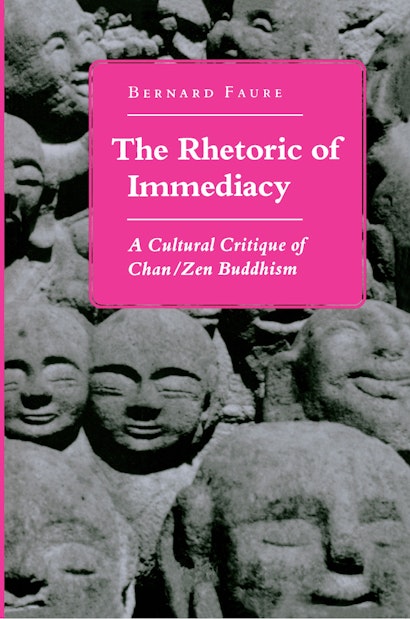The Rhetoric of Immediacy: A Cultural Critique of Chan/Zen Buddhism


Paperback
ebook
- Sale Price:
- $40.60/£33.60
- Price:
-
$58.00/£48.00 - ISBN:
- Published:
- Jun 8, 2021
- Copyright:
- 1991
- 5 halftones 4 line drawings
- Main_subject:
- Religion
30% off with code PUP30
Through a highly sensitive exploration of key concepts and metaphors, Bernard Faure guides Western readers in appreciating some of the more elusive aspects of the Chinese tradition of Chan Buddhism and its outgrowth, Japanese Zen. He focuses on Chan’s insistence on “immediacy”—its denial of all traditional mediations, including scripture, ritual, good works—and yet shows how these mediations have always been present in Chan. Given this apparent duplicity in its discourse, Faure reveals how Chan structures its practice and doctrine on such mental paradigms as mediacy/immediacy, sudden/gradual, and center/margins.
Awards and Recognition
- One of Choice's Outstanding Academic Titles for 1992